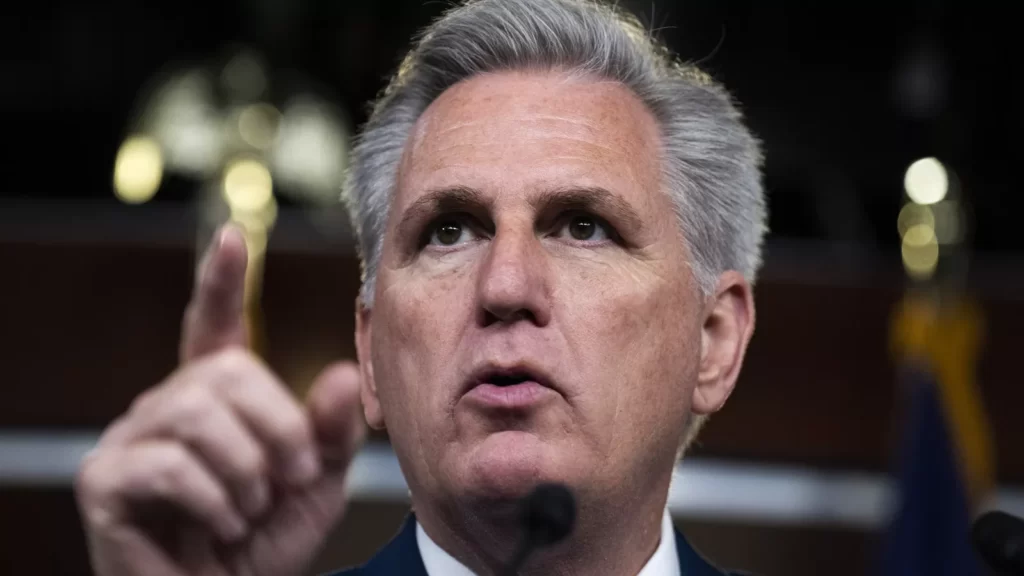- Alayna Treene
- Andrew Solender
Kevin McCarthy’s recent showdown with Rep. Madison Cawthorn (R-N.C.) has revealed the House minority leader’s clear red line in punishing members: whether the entire conference — especially those on the far-right — has his back.
Why it matters: McCarthy’s forthright and public condemnation of Cawthorn — after lesser actions against Reps. Marjorie Taylor Greene (R-Ga.), Paul Gosar (R-Ariz.) and Lauren Boebert (R-Colo.) — offer a glimpse into how he’d lead the party as House speaker.
- McCarthy’s willing to take risks when he knows he has political cover from the most outspoken House Republican members.
- He backtracked, for example, when he got blowback for criticizing former President Trump over the Jan. 6 Capitol insurrection.
- A McCarthy spokesman declined comment.
Behind the scenes: Rather than keep his tense, closed-door conversation with Cawthorn private — as he’s done with past controversies — McCarthy blasted the 26-year-old member both privately and publicly and left open the opportunity to take future action against him.
- He took the more aggressive approach only after it was clear the majority of his members not only welcomed such a move but demanded it.
- The strategy is in line with McCarthy’s innate attempts to make everyone in his conference happy — something that’s burned him in the past.
What we’re hearing: McCarthy felt emboldened to take a hardline approach with Cawthorn after members aired their grievances during two tense meetings last week, sources familiar with his decision tell Axios.
- Multiple conservative members slammed Cawthorn during a House Freedom Caucus (HFC) meeting last Monday for claiming his Republican colleagues have done cocaine and invited him to orgies.
- Several other House GOP members then demanded action during a full conference meeting last Tuesday.
The backdrop: McCarthy has cautiously avoided taking action against his right-wing members when they’ve stoked controversy.
- McCarthy has repeatedly called out Greene and Gosar — but it was Democrats who ousted them from committees.
- He also defended Rep. Lauren Boebert (R-Colo.) when Democrats accused her of Islamophobia for implying Rep. Ilhan Omar (D-Minn.) is a suicide bomber.
Two clear differences between these members and Cawthorn, leadership sources say, is that:
- Cawthorn’s remarks implicated fellow House GOP members.
- The conference was virtually united in taking action against Cawthorn, whereas Greene, Gosar and Boebert still had support from many conservative members — including those in the HFC.
Those HFC and hard-right fringe members will be crucial to ensuring McCarthy has a smooth ascent to speaker, should Republicans take back the House majority in November.
Between the lines: McCarthy’s rebukes of members who go after Republicans are often more pointed and backed up by concrete action.
- After initially supporting Rep. Liz Cheney (R-Wyo.) over her vote to impeach Trump, he eventually joined in the effort to oust her from leadership.
- That decision came after it was clear the majority of House Republicans wanted her gone following her repeated criticism of Trump.
What they’re saying: “I think it’s smart. He’s being shrewd,” Rep. Don Bacon (R-Neb.) said of McCarthy’s strategy of taking the conference’s temperature before acting.
- Rep. Dan Crenshaw (R-Texas), who often calls out his party’s extremes, said McCarthy’s comments on Cawthorn were “pretty strong” and reflected the mood of the conference.

Source: axios.com

